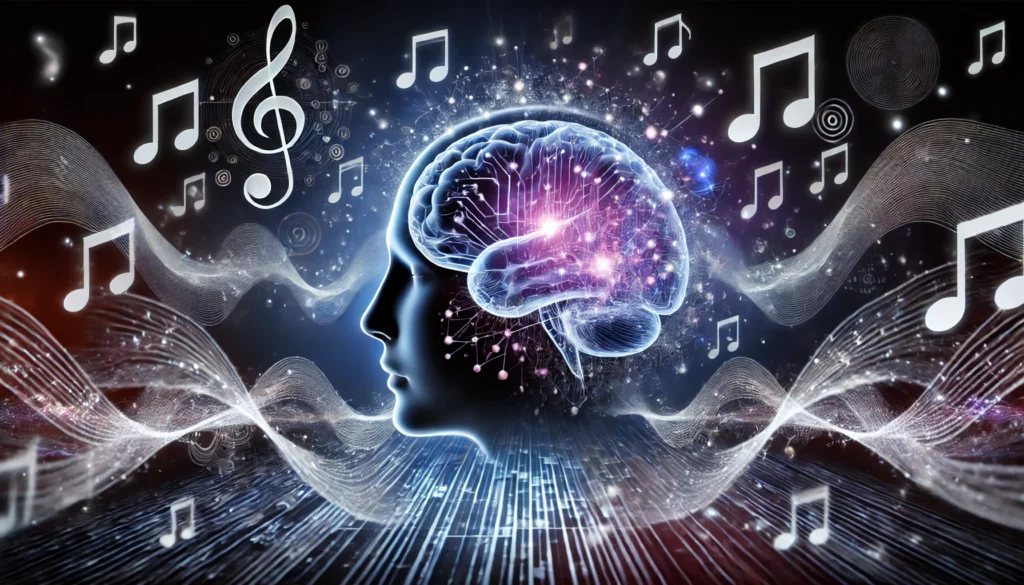In a world where distractions are constant and mental clarity is often elusive, the search for effective ways to enhance focus and cognitive performance has led researchers and everyday individuals alike to an intriguing ally—music. More than mere background noise, the right kind of music can significantly influence our ability to concentrate, process information, and maintain long-term brain health. Whether you’re a student burning the midnight oil or professional juggling multiple projects, understanding how music interacts with the brain can unlock new strategies for productivity and mental longevity. Recent scientific research supports the idea that the best music for concentration not only aids in immediate cognitive performance but also nurtures neurological resilience over time. As we explore this rich intersection of neuroscience and sound, it becomes clear that carefully curated auditory environments may be among the most accessible and powerful tools we have to boost brain function.
You may also like: How to Improve Focus and Concentration: Proven Techniques for Boosting Mental Clarity and Productivity
The Neuroscience Behind Music and the Brain
Music has a profound and measurable impact on brain activity. Functional MRI and EEG studies reveal that listening to music stimulates multiple brain areas simultaneously, including regions responsible for attention, memory, emotion, and motor coordination. These effects are not merely psychological but deeply biological, engaging the brain in a full-spectrum workout. For instance, rhythmic elements in music have been shown to synchronize neural oscillations, enhancing attentional focus and working memory capacity. The auditory cortex, prefrontal cortex, hippocampus, and cerebellum all play active roles in decoding and responding to music, creating a neural symphony that supports cognitive processes. Such widespread activation is particularly valuable when it comes to sustaining attention during complex or repetitive tasks.
Moreover, music’s ability to modulate neurotransmitters like dopamine and serotonin contributes to improved mood and reduced stress, which are crucial for cognitive efficiency. Reduced stress levels lead to lower cortisol secretion, and since cortisol has a well-documented negative effect on memory and attention, the benefit of music becomes even clearer. Individuals exposed to good focus music often report an increased sense of immersion in their work, reduced awareness of external distractions, and improved task completion times. This biological underpinning lends credibility to the practice of using music strategically to support cognitive performance and long-term brain health.

What Makes the Best Music for Concentration?
Not all music is created equal when it comes to enhancing focus. The best music for concentration typically features certain characteristics that are conducive to mental clarity. Instrumental tracks are often preferred, as lyrics can activate language-processing centers in the brain, potentially diverting attention from the task at hand. Genres such as classical, ambient, lo-fi, and electronic are commonly cited as effective, though individual preferences and task type can influence what works best. A steady tempo, minimal dynamic variation, and harmonic simplicity are also key elements. These qualities help the brain enter a state of flow, wherein attention is fully directed toward the activity without frequent interruptions.
Binaural beats and isochronic tones are specific types of auditory stimuli designed to influence brainwave activity. When used correctly, they can encourage brain states associated with concentration and problem-solving. For example, beta waves are linked to alertness and logical thinking, while alpha waves support relaxed yet focused mental states. Including such elements in your playlist can elevate the functional value of your listening experience. Thus, selecting the best focus music involves more than just hitting “play” on your favorite tunes—it requires thoughtful curation aimed at aligning auditory input with cognitive goals.
How Music Enhances Cognitive Function
The relationship between music and cognitive function extends well beyond momentary improvements in concentration. Listening to music regularly can strengthen neural pathways and enhance brain plasticity—the brain’s ability to reorganize itself by forming new connections. This is particularly relevant for aging individuals seeking to maintain mental sharpness over time. Music activates and connects both hemispheres of the brain, improving inter-hemispheric communication, which is crucial for higher-order cognitive functions such as reasoning, planning, and problem-solving.
In academic and workplace settings, playing music to help focus can lead to measurable improvements in performance. A growing body of research demonstrates that students who listen to music while studying retain more information, particularly when the music is aligned with the nature of the task. For example, spatial-temporal tasks benefit from baroque music, which has a structured and predictable rhythm. Professionals working in creative fields also report that music to help study or focus can stimulate ideation and reduce mental fatigue. When implemented strategically, focus songs become more than just a passive experience—they become cognitive enhancers in their own right.
Music as a Tool for Emotional Regulation and Cognitive Clarity
One of music’s most powerful attributes is its ability to regulate emotional states, which in turn affects cognitive clarity. Emotional distractions—whether rooted in stress, anxiety, or fatigue—are significant barriers to concentration. The act of listening to music can serve as a form of emotional cleansing, clearing the mind of intrusive thoughts and preparing it for focused activity. Music that evokes positive emotions or a sense of calm can lower heart rate and blood pressure, creating physiological conditions that are optimal for sustained attention.
In therapeutic settings, music is often employed to support patients with ADHD, anxiety disorders, and depression—all conditions that impair concentration. Research has shown that good focus music can help regulate arousal levels, aligning them with the demands of the task at hand. This calibration of emotional state and cognitive need creates an environment in which the mind can operate at peak performance. The strategic use of music to help focus is therefore not only a productivity hack but also a form of self-care that acknowledges the deep interconnection between emotion and cognition.
The Role of Personal Preference in Music Selection
While certain types of music are generally effective for concentration, personal preference plays a critical role in determining efficacy. Cognitive and emotional responses to music are highly individualized, influenced by factors such as cultural background, past experiences, and personality traits. A piece of music that enhances focus for one person may be distracting or emotionally overwhelming for another. Therefore, it’s essential to experiment with different genres, tempos, and instrumental arrangements to discover what resonates most effectively.
Incorporating user-specific data into music recommendation algorithms is a growing area of research, particularly in the context of productivity and mental wellness. Personalized playlists that adapt to real-time feedback can significantly improve the user experience and effectiveness of music to help study or concentrate. The ability to play music for focusing that aligns with both cognitive demands and emotional states is a hallmark of an optimized auditory environment. Over time, individuals can learn to recognize which focus songs reliably elicit their best performance and integrate them into daily routines.
Music and Brain Health Across the Lifespan
Beyond its immediate cognitive benefits, music has profound implications for long-term brain health. Lifelong engagement with music—whether through listening, playing instruments, or composing—has been associated with a lower risk of neurodegenerative diseases such as Alzheimer’s and Parkinson’s. This protective effect is attributed to music’s role in maintaining neuroplasticity, stimulating the release of neurotrophic factors, and preserving the structural integrity of white and gray matter in the brain.
For older adults, incorporating music into daily routines can improve quality of life, reduce feelings of isolation, and enhance memory recall. Listening to best focus music during cognitive exercises or while engaging in hobbies can provide dual benefits—mental stimulation and emotional enrichment. Even in late stages of cognitive decline, individuals often retain the ability to respond to music, suggesting that musical memory is deeply embedded within the brain’s architecture. Thus, the practice of using music to help study or maintain concentration in youth can lay the foundation for cognitive resilience later in life.

Practical Tips for Integrating Music into Daily Focus Routines
Creating an effective music-based focus routine involves more than simply pressing play. Start by identifying tasks that require sustained attention and consider pairing them with specific types of music that support those cognitive demands. For example, ambient or minimalist music works well for analytical tasks, while melodic instrumental pieces may enhance creative writing or design work. Ensure that the volume is kept at a moderate level, as excessively loud music can become a distraction rather than an aid.
Use playlists or streaming services that specialize in focus-enhancing music. These platforms often categorize music to help study, concentrate, or relax, making it easier to find what suits your needs. Experiment with different tempos and sound textures to determine what promotes your ideal mental state. Incorporate short listening breaks between tasks to reset attention and prevent cognitive fatigue. Over time, the act of playing music for focusing can become a conditioned cue that signals the brain to enter a productive state.
Scientific Validation of Music’s Cognitive Benefits
The growing body of empirical research supporting music’s role in cognitive enhancement is both robust and compelling. Studies conducted across various age groups and cultural contexts consistently show that structured exposure to music improves attention span, working memory, and executive function. Neuroscientists have used brain imaging to observe how focus songs synchronize neural circuits, enhance synaptic efficiency, and facilitate faster information processing.
Randomized controlled trials have further demonstrated that individuals who regularly listen to the best focus music perform better on cognitive tasks compared to those who work in silence or with random auditory stimuli. These findings are not limited to academia; corporate environments have also embraced music as a tool for enhancing workplace productivity and employee well-being. Such widespread validation underscores the importance of integrating music into strategies for cognitive development and brain health maintenance.
Cultural and Historical Perspectives on Music and Mental Performance
The use of music to enhance mental performance is not a modern phenomenon. Ancient civilizations, from the Greeks to the Chinese, recognized the therapeutic and cognitive value of music. Philosophers like Plato and Confucius wrote about music’s ability to shape character and intellect, while traditional healing systems often incorporated music as a central element of holistic well-being. These historical perspectives provide a rich cultural context for understanding why music continues to play an important role in contemporary cognitive enhancement strategies.
In more recent history, educational institutions and military organizations have utilized music to improve learning, coordination, and morale. The idea that one can play music for focusing is deeply embedded in practices ranging from classroom instruction to elite athletic training. Understanding the historical lineage of music’s cognitive role enriches our appreciation of its current applications and supports a more intentional and informed approach to its use.
Looking Ahead: Innovations in Music and Cognitive Technology
The intersection of music and cognitive technology is a rapidly evolving frontier. Advances in neurofeedback, artificial intelligence, and wearable biosensors are enabling the creation of adaptive music systems that respond in real time to a user’s brain activity and physiological state. These innovations hold immense potential for optimizing music to help focus, tailoring auditory input to match and enhance cognitive rhythms.
Startups and research institutions are already developing applications that generate personalized soundscapes to support specific mental tasks, such as writing, problem-solving, or meditation. These tools use biometric data to adjust tempo, frequency, and complexity dynamically, providing a continuously optimized auditory environment. The future of best focus music may well lie in these intelligent, responsive systems that integrate seamlessly into our daily lives.

Frequently Asked Questions: Music for Focus and Cognitive Enhancement
1. Can the type of headphones you use affect the effectiveness of good focus music?
Absolutely. The quality and type of headphones can significantly impact how well good focus music supports your concentration. Noise-canceling headphones are particularly effective when you’re in a distracting environment because they help block out ambient noise, allowing you to fully immerse yourself in music to help focus. Open-back headphones, on the other hand, offer a more natural soundstage but are better suited for quieter spaces. Additionally, comfort plays a role in prolonged listening—ill-fitting or uncomfortable headphones can become a distraction in themselves, reducing the overall benefit of focus songs. Investing in high-quality audio equipment may enhance the physiological and psychological effects of the best music for concentration, especially for those using it as part of a daily work or study routine.
2. How can music be used to train the brain for better focus over time?
Just as athletes train their bodies through repeated practice, you can use music to train your brain to enter a focused state more efficiently. By consistently playing music for focusing at the start of study sessions or work periods, you build a conditioned association between that auditory cue and mental concentration. Over time, this cue becomes a cognitive trigger, helping your brain transition into deep work more quickly. Some individuals even develop a curated playlist of focus songs designed to follow a specific arc—from warm-up to peak focus and eventually cool-down. This conditioning method is especially effective when using the best focus music with consistent tempo and instrumental structure.
3. Are there cultural or linguistic factors that influence which music to help focus is most effective?
Yes, cultural background and linguistic familiarity can shape individual responses to music to help focus. For instance, music with lyrics in a listener’s native language can sometimes disrupt focus due to involuntary language processing, whereas lyrics in an unfamiliar language may fade into the background like instrumental tracks. Moreover, rhythms and scales common in one culture may evoke relaxation in one person but excitement or distraction in another. That’s why there’s no universally perfect best focus music—individuals should consider exploring genres from other cultures, such as Indian classical ragas or Japanese ambient compositions, to find what resonates best. These cross-cultural explorations may uncover hidden gems that serve as highly effective music to help study or concentrate.
4. What role does tempo play in determining whether a track qualifies as good focus music?
Tempo is a crucial element in determining the effectiveness of good focus music. Generally, a tempo ranging from 60 to 80 beats per minute (BPM) is ideal for inducing a calm but alert mental state. This range tends to mirror the resting heart rate, which promotes physiological coherence between the body and auditory stimuli. Faster tempos may be stimulating for physical activity but can lead to cognitive overload during deep mental tasks. Conversely, extremely slow music may induce drowsiness rather than sharpened attention. When you play music for focusing with optimal tempo, it can regulate neural activity in ways that foster sustained mental engagement.
5. How can individuals working in high-pressure jobs integrate best focus music into their routines without disrupting workflow?
Professionals in high-stakes environments—such as surgeons, software engineers, or financial analysts—can benefit from subtly integrating best focus music into their workspaces. One approach is to create brief, designated music intervals throughout the day, such as during administrative tasks or email triage, to mentally reset between high-demand responsibilities. Some find it helpful to use music to help focus as part of a pre-task ritual, signaling to the brain that it’s time to enter a state of heightened awareness. Using discreet, low-volume playback methods ensures that the music remains a backdrop rather than a focal point. When appropriately integrated, focus songs can become a seamless part of high-performance work routines, improving resilience and mental clarity under pressure.
6. Are there biological differences that affect how individuals respond to focus songs?
Biological variability—such as genetic predispositions, auditory sensitivity, and even hormonal fluctuations—can influence how effective focus songs are for different individuals. For example, people with heightened sensory processing may find layered, complex music overwhelming and perform better with minimalist or ambient tracks. Neurodivergent individuals, such as those with ADHD or autism spectrum conditions, may have unique auditory preferences that dictate which music to help focus is most effective. Hormonal cycles can also impact focus, meaning that the same song may yield different results on different days. Personal experimentation remains key to identifying the best music for concentration based on one’s neurobiological makeup.
7. How does the listening environment influence the effects of music to help study?
The surrounding environment plays a substantial role in how well music to help study works. Acoustic characteristics such as echo, background noise, and room temperature can either enhance or interfere with the music’s effectiveness. In acoustically treated rooms or quiet libraries, even low-volume music can deliver powerful focus-enhancing benefits. In contrast, crowded or noisy spaces may require stronger noise-canceling technology or higher-volume playback to achieve the same effect. The visual environment also matters—pairing good focus music with calming visuals, such as nature scenes or minimalist workspaces, can amplify its cognitive benefits by creating a multi-sensory focus zone.
8. Can music to help focus also aid in emotional resilience during cognitively demanding periods?
Absolutely. Emotional resilience is closely linked to cognitive stamina, and music can serve as a powerful tool in building both. During periods of stress or cognitive fatigue, playing music for focusing can help stabilize mood, lower cortisol levels, and facilitate emotional recovery. In this way, the best focus music supports not only concentration but also psychological durability. Some professionals curate playlists not just for focus but for emotional reinforcement—songs that evoke a sense of control, determination, or calm during mentally taxing tasks. Over time, this dual-purpose strategy can enhance both productivity and emotional well-being.
9. Are there any potential drawbacks to using best music for concentration daily?
While there are many benefits, using the best music for concentration every day without variation can lead to diminishing returns. The brain may habituate to familiar tracks, causing them to lose their cognitive potency over time. To counteract this, it’s useful to refresh playlists periodically and rotate between different genres or soundscapes. Moreover, reliance on music for every task could reduce flexibility in environments where music isn’t permitted or feasible. That said, for most users, the benefits of using good focus music or music to help study far outweigh the drawbacks when implemented mindfully and with strategic variety.
10. How is emerging technology changing the future of music to help study and enhance brain performance?
Advancements in neuroscience and AI are ushering in a new era for music to help study and focus. Technologies like biometric-responsive soundscapes can now adapt in real-time to your physiological signals—such as heart rate variability or brainwave patterns—creating personalized auditory experiences that evolve with your mental state. These innovations make it possible to play music for focusing that is dynamically tailored to your needs, down to the second. Additionally, machine learning algorithms are increasingly capable of predicting which musical attributes yield optimal focus for different user profiles. As this field matures, we’re likely to see the best focus music delivered through smart, adaptive platforms that function as cognitive partners, rather than passive entertainment.
Conclusion: Tuning Into Cognitive Wellness with the Best Focus Music
Harnessing the power of the best music for concentration offers more than just a fleeting boost in productivity—it represents a holistic strategy for enhancing cognitive performance and protecting long-term brain health. As scientific research continues to validate the neurological benefits of music, and as technology makes it increasingly easier to personalize our auditory environments, the act of listening becomes a form of self-optimization. Whether you rely on good focus music to meet academic deadlines, play music for focusing during demanding work sessions, or explore music to help study for exams, you’re engaging in a practice grounded in neuroscience and enriched by centuries of cultural tradition.
The ability to curate your mental environment through carefully selected focus songs is both empowering and practical. In a world that demands constant adaptation and sustained mental agility, the role of music in supporting cognitive resilience is not just valuable—it’s essential. As we continue to explore and refine the ways we use music to help focus, we are not only improving our present performance but also investing in our future neurological health. Let the rhythm guide your mind, and let your playlist become a cornerstone of your cognitive wellness journey.
Brain-boosting techniques, cognitive performance strategies, mental clarity tools, productivity and neuroscience, auditory stimulation for focus, studying with background music, concentration improvement tips, music therapy for brain health, attention span enhancement, neuroplasticity and learning, soundscapes for productivity, cognitive enhancement habits, optimizing mental performance, binaural beats and focus, ambient music benefits, music and memory retention, instrumental study playlists, emotional regulation through music, tech-assisted concentration, focus improvement methods.
Further Reading:
Music for concentration, here’s what science says
How Music Can Sharpen Your Mind And Enhance Brain Function
6 Songs That Have Been Scientifically Proven to Improve Your Focus
Disclaimer
The information contained in this article is provided for general informational purposes only and is not intended to serve as medical, legal, or professional advice. While Health11News strives to present accurate, up-to-date, and reliable content, no warranty or guarantee, expressed or implied, is made regarding the completeness, accuracy, or adequacy of the information provided. Readers are strongly advised to seek the guidance of a qualified healthcare provider or other relevant professionals before acting on any information contained in this article. Health11News, its authors, editors, and contributors expressly disclaim any liability for any damages, losses, or consequences arising directly or indirectly from the use, interpretation, or reliance on any information presented herein. The views and opinions expressed in this article are those of the author(s) and do not necessarily reflect the official policies or positions of Health11News.


